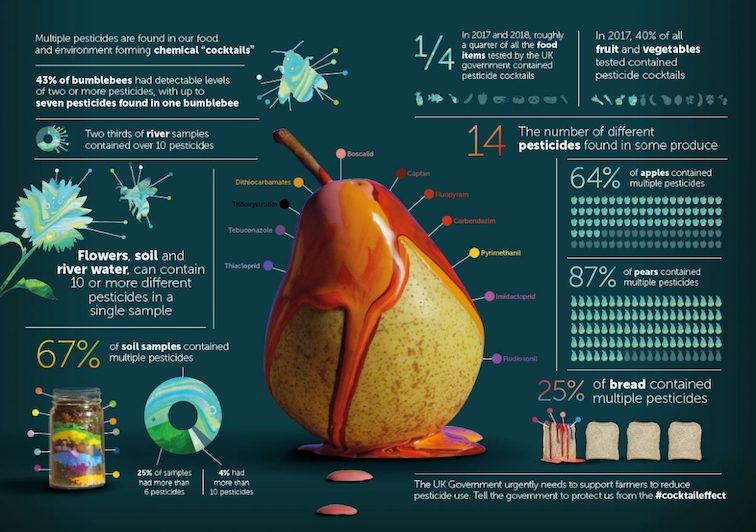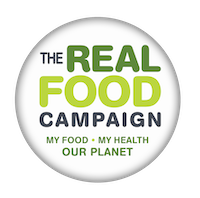Organic
Modern organic farming was conceived in the early 1900s as a response to the harm caused by the use of chemical pesticides and synthetic fertilizers.
Organic systems use more natural methods of pest control and use biological fertilizers such as manure and the use of cover crops.
Certification is rigorous and guarantees certain standards, however many small local growers without certification may also be avoiding or minimizing chemicals – so please ask.
 Read more about organic on the Soil Association website.
Read more about organic on the Soil Association website.
We must treat the whole problem of health in soil, plant, animal, and man as one great subject
Sir Albert Howard
1843-1947
Pesticides
We may be told by the chemical companies that individual pesticides are deemed to be safe, but there is compelling research that links cocktails of pesticides to ill health – including increased risk of cancer.
Read more about The Cocktail Effect on the Pesticide Action UK website

Regenerative agriculture
‘Regenerative Agriculture is a system of farming principles and practices that increases biodiversity, enriches soils, improves watersheds, and enhances ecosystem services. Regenerative Agriculture aims to capture carbon in soil and aboveground biomass, reversing current global trends of atmospheric accumulation.’
In other words, regenerative agriculture reverses the damage caused by intensive agriculture and has the potential to reverse climate change. It also produces nutrient-dense food on less land. It seems to us that regenerative agriculture holds the solution to many of our problems.
While organic farms and gardens, and animals on pasture often have positive effects on soil health and the ecosystem, they may not be truly regenerative. At present, there is no labelling system for ‘regeneratively produced’ but it may be coming soon. In the meantime speak to your local food providers to find out if they are practising regenerative methods.
Find out more in the videos below… they are well worth the watch.
Feeding a growing population
There is a mantra that bigger is better, that we need large-scale, industrially driven monoculture agriculture and GMOs to feed a growing population. However, we don’t agree. We think that for a healthy and sustainable future in Britain we need more small, mixed farms.
For more on this topic:
- How Small Farms Can (Sustainably) Feed The Future by Louisa Chalmer, Medium
- Farms and public health: Does size matter? by Rebecca Michael Elderkin on in Farming, Food Systems, Health

